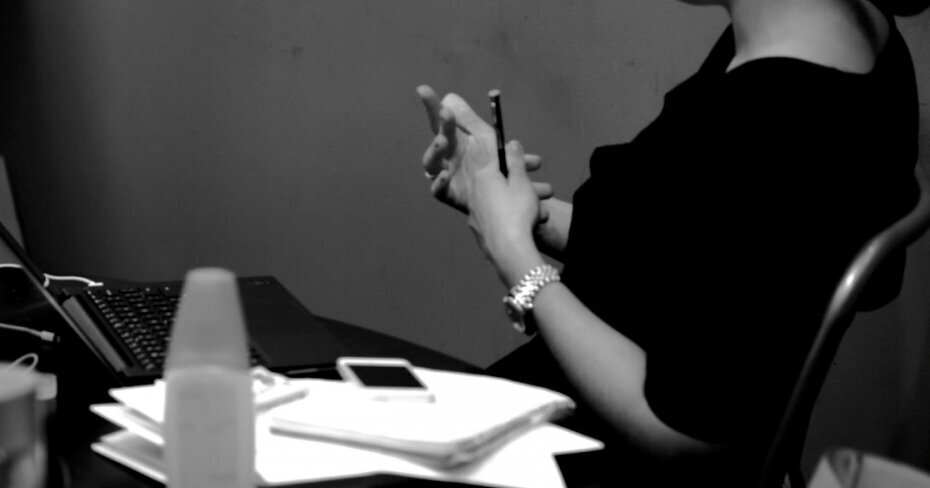We need to get rid of the ugly stereotypes around women and money
By: Desirae Odjick on March 8, 2017
There are very few, if any, truly harmless stereotypes.
In the world of money, stereotypes can be particularly harmful, especially when it comes to women. Just ask me about the time a man made a ‘harmless’ joke about me spending all of my boyfriend’s money, or the time a different man called me a gold digger. In the workplace.
I mean, I’m not even mad — I’m just confused. Did he think I was there for fun, instead of to earn my own paycheque?
Those are just some of the stereotypical jokes that pop up when we’re not thinking critically about our assumptions about women and money. So in celebration of International Women’s Day, let’s all take a minute to confront — and heartily dismiss — the ridiculous and enduring stereotypes that we hear all the time about women and money.
#1. Women are big spenders
This mug has popped up on my Twitter feed more than almost any other meme, which shouldn’t be an occupational hazard of Finance Twitter… but it is.
The joke is, of course, that women can’t control themselves with money, that women love to shop beyond what’s reasonably aligned with their budgets, and that men need to control women with money, all because they’re such big spenders.
What a funny joke (said no one ever).
Women are just as capable as men are about making reasonable purchase decisions, based on their knowledge of their financial situation. They’re also just as likely to make bad spending decisions as men if they don’t have a handle on their money.
Equality: we all make regrettable purchases sometimes!
#2. Women are bad at money
It’s not just spending where women get a bad rap, either. On the long list of things women are expected to know, including “all the ways your eyebrows are wrong” and “how to shave your ankles without bleeding out,” managing money doesn’t really make the top 10. Or even the top 100.
No one expects me to understand the differences between a TFSA and an RRSP. They also don’t turn to me as an expert in the latest fintech apps available to Canadians, or an early adopter of new investing platforms.
The joke’s on them, though, because I know and am all of those things, and my eyebrows are a complete disaster.
#3. Women aren’t serious about their careers
This is a sneaky one, because at first glance, that doesn’t seem to be a stereotype about women and money until you step back to realize that the bulk of someone’s lifetime wealth is probably going to come from their jobs.
Whenever someone assumes that a woman is going to opt out of her career, or downshift, or even just assumes that women don’t care as much about career progression as men, it costs women money.
Whenever someone assumes ... women don’t care as much about career progression as men, it costs women money
If I assume someone’s not serious about their career, I’m not going to mentor them, promote them, or pay them more money. Every time a woman gets passed over for a raise, or a promotion, or a mentorship opportunity, just because someone let this bias creep into their decision-making process, we all lose.
And if you think we don’t, just remember that 31% of women are the breadwinners in their families, and that stat comes from way back in 2010. There’s some pretty strong evidence that women do, in fact, care about their careers. (Not that it needed to be proven.)
#4. Women are risk-averse
We can’t all be Warren Buffet when it comes to investing, which is why there’s a thriving industry of people and tools that can help you manage your money. As part of the setup process, they’ll work with you to figure out your goals and your risk tolerance, to make sure you’re invested in the right things. (Yes, even if you’re investing with a robo-advisor.)
If those people buy into the hype about women being less risky, they might steer their female clients towards safer investments, which generally deliver lower returns. Even if those returns are 2% lower than a riskier portfolio, that could end up costing the average Canadian more than $448,625.35 in investment gains during a 40-year career.
So the next time you’re sitting across from someone, make sure you know how much risk you’re comfortable with — and advocate for yourself.
The worst, and most damaging, stereotypes of all
As bad as all of those stereotypes about women and money can be, there’s one thing that has the potential to really make them worse: When women themselves believe them.
Because true confession: it took me a long time to look at myself in the mirror and really challenge some of these beliefs. When people made jokes that played on these stereotypes around me for the first few years of my career, I laughed and brushed it off like it was no big deal.
It’s why I didn’t push back when I realized I was underpaid. It’s why I didn’t challenge my banker when they said — erroneously — that I didn’t have enough money to invest. It’s why I assumed I’d never make more money.
Luckily, I have friends and cherished mentors — of both genders — who saw past these all-too-frequently-held stereotypes about women and money, and pushed me to take an active role with my money and my career.
It took me a long time to look at myself in the mirror and really challenge some of these beliefs
So if you’re reading this, it’s not too late. You can entirely control your money, your investments, and your career on your terms, regardless of some pretty pervasive stereotypes to the contrary.
Happy International Women’s Day, girlfriend. You are just as capable as anyone at handling your own personal finances, because no one comes out of the womb understanding RRSPs or budgeting, and we all have to start somewhere.
And you have everything you need to start. And your eyebrows look great.

 (1)_0.jpg?itok=0ZOZgBUi)
